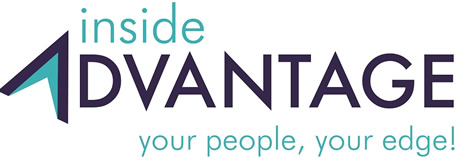Workplace disputes are costly. They damage relationships and compromise business performance. Read our article on workplace conflict here. Disciplinary and grievance policies are designed to manage disputes by establishing wrongdoing by employees against their company or colleagues.
While these policies appear to resolve disputes, they are time consuming, unpleasant for all, including colleagues involved in an investigation, and typically end with the imposition of sanctions, often leaving the ‘guilty’ parties aggrieved. This increases the risk of conflict escalating and leading to tribunal claims and more stress for those involved. How can employers resolve disputes and minimise these risks? Mediation offers a solution!
What is mediation?
Mediation is a form of alternative dispute resolution. It is an excellent tool for resolving conflict and rebuilding individual relationships and can often strengthen relationships between managers and employees. Mediation is the intervention of a trained, independent and impartial third party to discuss a dispute with the individuals involved with the aim of achieving a desire and commitment for a resolution.
It is quicker and less stressful than formal processes, particularly litigation, which is lengthy, costly and damaging to the parties and the employer. Unlike formal dispute resolution, mediation does not examine the past or the rights and wrongs, it is future-orientated and solutions focused, motivated by rebuilding relationships. It is an informal, flexible, entirely voluntary and completely confidential process. Discussions are not disclosed to any other party unless mutually agreed. In fact, ACAS recommends mediation by a third party as a way of resolving workplace disputes without resorting to litigation.
How does it work?
Mediators use their skill and experience to encourage parties in conflict to share their views about the problem and its affects. This is achieved through a series of meetings held individually and then jointly. Mediation typically takes one day but more complex cases may need two to three days. By using verbal and non-verbal communication techniques designed to encourage parties to share their frustrations about the conflict, mediators explore the issues.
Through active listening, they pick up on key fears and concerns and help the parties to consider the potential consequences of unresolved conflict and the benefits of resolution. By exploring the issues in this way, mediators can help to lift the emotional fog of disputes and encourage parties to identify progressive and workable solutions.
A mediator’s role is not to suggest solutions or take sides, it is to encourage a reciprocal appreciation of views and feelings to elicit a commitment to change. Mediators move between the parties to communicate the other’s perspective, creating understanding and empathy and the desire and commitment to develop proposals for a resolution.
When the parties are happy with the proposals, a joint meeting is convened to convert the proposals into measurable objectives in a written agreement. The agreement is entered into in good faith and is not legally binding. The parties can therefore still opt to pursue legal redress should they so choose. Nevertheless, individuals tend to adhere to these agreements because they have created them and have not been forced to accept any solutions.
By referring employers to mediation, an employer is making a clear statement that they are not taking sides and attribute equal value to the involved parties. The focus on solutions rather than blame brings a respectful approach to dispute resolution which has a positive effect on the parties, enhancing engagement with the organisation. This can create organisational champions who, by committing to a change of behaviour, can often lead a change in organisational culture and a positive effect on business performance.
When is mediation appropriate?
There are no set rules for when to use mediation. It often works best in situations involving conflict between individuals, on the same or different grades, who need to work together or interact with each other to effectively perform their duties. It can be particularly beneficial where a breakdown of trust has occurred or the law shrouding the dispute is ambiguous. It can also be extremely useful in resolving discrimination and bullying claims.
However, both parties must have a desire for resolution and it must be in both parties’ interest to settle the dispute amicably. Accordingly, it may not be appropriate in cases where it is necessary to determine right from wrong or where a victim of discrimination, bullying or harassment wants their complaint formally investigated. It is also be inappropriate to use mediation to cover up a manager’s incompetence.
Benefits of mediation
- It is significantly more cost effective than formal dispute resolution processes
- It limits the stress of formal procedures on the parties, management and HR
- It’s the quickest form of dispute resolution, preventing damage to performance and the working environment
- It enhances working relationships
- It enhances engagement which has a positive effect on both conduct and performance
- It can provide some important remedies that are not usually achieved through traditional means, e.g. an apology or genuine expression of regret
- In the unlikely event that the parties are unable to reach agreement and they pursue legal redress, details of the mediation process cannot be disclosed or used in any subsequent legal proceedings
Considering the potential cost to organisations of workplace disputes and the numerous benefits of mediation, isn’t it time organisations started a conversation!
If individuals in your business are locked in dispute, contact us for a no obligation discussion to see how our accredited mediators can help.







